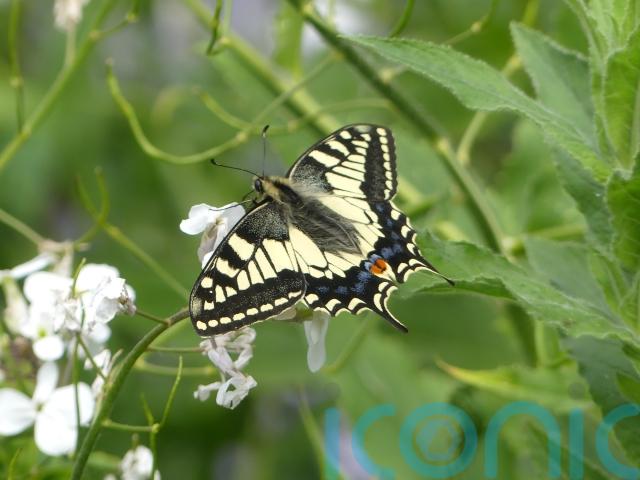
Researchers are investigating whether a rare British butterfly could be reared from eggs frozen in liquid nitrogen in an effort to safeguard the future of the species.
The survival of the British Swallowtail butterfly, found exclusively in East Anglia and predominantly in the Norfolk Broads, is under threat and its population has dropped by 57% in the last 20 years.
This is because of habitat loss, climate change and genetic erosion due to its limited geographical range.

Researchers from Anglia Ruskin University (ARU), together with others, are exploring whether cryopreservation could help in their conservation.
Jimmy’s Farm and Wildlife Park near Ipswich in Suffolk houses a thriving captive population of a genetically similar but far more abundant species than the British Swallowtail.
The eggs of these more abundant butterflies will serve as the model for the new research, which will involve freezing them in liquid nitrogen at minus 196C.
Researchers will then attempt to rear butterflies from the frozen eggs, comparing their development and reproductive success with control groups of butterflies from non-frozen eggs.
If the method is effective, it is hoped that the eggs of the British Swallowtail can then be stored to support long-term conservation strategies, such as breeding programmes and reintroduction efforts.
Dr Alvin Helden, of Anglia Ruskin University, said: “Although this has been an excellent summer for our native butterflies, the long-term picture for the British Swallowtail is one of decline.
“Our project will combine fieldwork and lab research to see if we can establish a reliable method for preserving the British Swallowtail’s genetic material by using its closely related, but less endangered, European cousin.
“Cryopreservation is a promising tool for supporting conservation efforts, but we believe this is the first time it has been attempted with butterflies.
“We will be investigating whether the caterpillars are as healthy and whether the butterflies are as productive as those that come from eggs that haven’t been frozen.
“If successful, this research has the potential to help safeguard the future of the British Swallowtail and significantly contribute to butterfly conservation in general.”
Jimmy Doherty, founder of Jimmy’s Farm and Wildlife Park and a visiting professor at ARU, said he hoped the work “could make a real difference in protecting the British Swallowtail for generations to come”.
UK biobank Nature’s SAFE is also working on the project, and its chief operating officer Debbie Rolmanis said it was important for other pollinators and invertebrates.
“This project holds significant importance for the development of cryopreservation techniques – not only for the British Swallowtail, but across pollinators and invertebrates as a whole,” she said.
“Building capability in this area provides the opportunity to create impact for conservation, food production and biodiversity preservation – the critical triad for human and planetary health.”
Subscribe or register today to discover more from DonegalLive.ie
Buy the e-paper of the Donegal Democrat, Donegal People's Press, Donegal Post and Inish Times here for instant access to Donegal's premier news titles.
Keep up with the latest news from Donegal with our daily newsletter featuring the most important stories of the day delivered to your inbox every evening at 5pm.